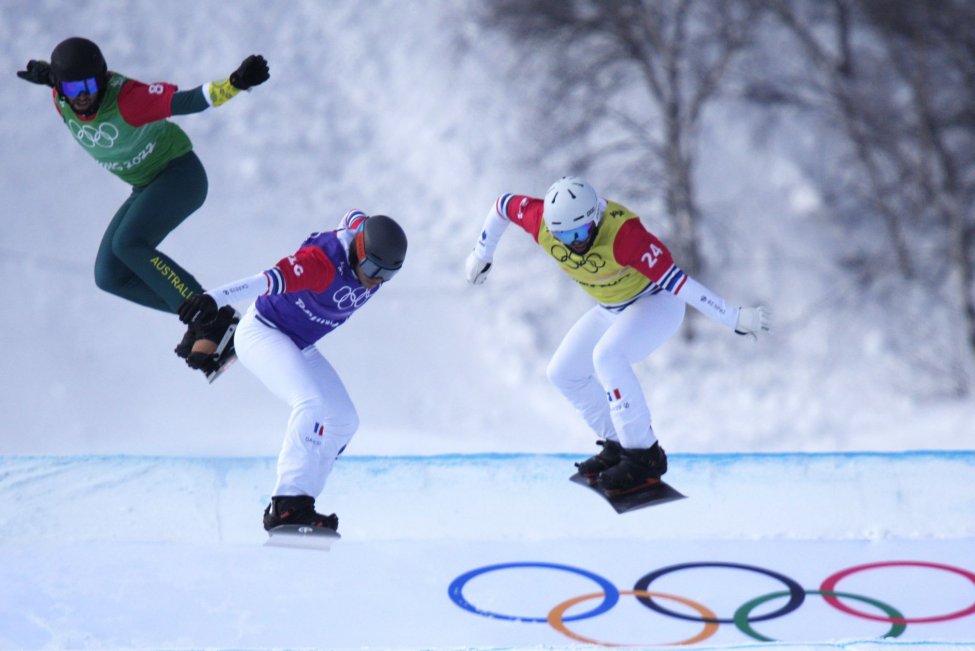11 Dec 2024

Tired Earth
By The Editorial Board

The trend of warming winters has already been making it harder to keep snow on the ground at many of the 21 cities that previously hosted Winter Games.
Over the past century, nearly two dozen cities around the globe have hosted the Winter Games. This includes North American destinations such as Vancouver and Salt Lake City, European winter hotspots such as Innsbruck, Austria, and Turin, Italy, and Asian cities such as PyeongChang, South Korea, and Nagano, Japan.
On Feb. 3, the 24th Olympic Winter Games began in Beijing, and according to Sports Illustrated, it's the first time that an Olympic host city has had to rely entirely on artificial snow.
According to a recent study by researchers with the University of Waterloo in Ontario, Canada, February temperatures in the 19 previous Winter Olympics host cities since 1950 have risen considerably. Since 1950, these cities have experienced an average of a 4.8-degree Fahrenheit rise in temperature. Over that same period, Beijing has warmed 8.9 F.
Daniel Scott, a professor of geography and environmental management at the University of Waterloo, and one of the authors of the study, told AccuWeather national reporter Bill Wadell that "right now, with the current climate, about half the hosts can provide really good [snow] conditions 90 of the time or better."
Scott and fellow researchers projected what these cities could look like going forward, both in 2050 and 2080, if reductions in global emissions aren't made.
"Under a high-emission scenario, if we continue down the path we are on now, we are left with about four climate-reliable locations mid-century, and we're down to one in the late century," Scott explained.
The four cities projected to remain climate-reliable in 2050 are Lake Placid, N.Y., Lillehammer and Oslo, Norway, and Sapporo, Japan.
Of the above four cities, the only climate-reliable city by 2080, assuming global emissions aren't curbed, will be Sapporo, according to the study.
In a low-emissions scenario, which is in alignment with the goals of the Paris Climate Agreement, nine of 21 host cities would have reliable February conditions by the 2050s, and the number would dip to only eight by the 2080s, according to the study.
"We're seeing some real effects on our winter sports prospects from the climate crisis, and it really is threatening the ski industry," the former mayor of Salt Lake City, Rocky Anderson, said of the changes he has seen in Utah since the Winter Games were hosted in the city back in 2002.
"The burning of fossil fuels is really posing an immense threat to winter sports venues all over the world," Anderson told Wadell.
February temperatures in Salt Lake City have risen nearly 3 degrees since 1950, according to Climate Central.
Scott's study also involved surveying international winter sports athletes and coaches. Almost all of those surveyed, 94%, were fearful that climate change would impact the future development of their respective sports.
The survey results showed that athletes and coaches were concerned about conditions such as higher temperatures, a low natural snowpack and the use of artificial snow as some of the more impactful factors during outdoor winter sports competitions. These were also cited as safety factors.
While a blanket of artificial snow allowed the city of Beijing to host this year's Winter Olympics, it did require athletes to prepare differently for the Games.
"[Artificial snow] is harder and icier and transforms differently with different weather. It can make the course -- I don't want to say dangerous -- but more tricky in terms of figuring out how you are going to navigate corners," Jessie Diggins, a gold medalist in cross-country skiing at the 2018 Olympics in Pyeongchang, told The New York Times.
"No sport can escape the impacts of a changing climate. Achieving the Paris Agreement targets is critical to save snow sports as we know it and ensure there are places across the world to host the Winter Olympics," Scott said in a press release.
The Paris Climate Agreement, introduced in 2015, is an international treaty among countries around the world to make a conscious effort to reduce greenhouse gas emissions which have proven to be one of the greatest contributing factors to global warming.
Some researchers pointed out that Paralympic Games could be at an even greater risk. Over the past 20 years, these events have been held approximately a month following the Winter Olympics, typically in March, when average temperatures in the Northern Hemisphere are climatologically higher and a lack of snow is already an issue.
Source : upi.com
Comment